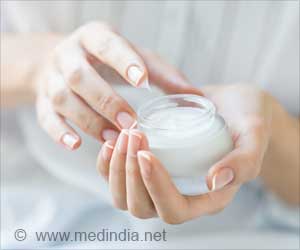A new class of drugs has been identified to decrease menopausal symptoms in women. This drug can be used as an alternative to Hormone Replacement Therapy (HRT).
Highlights:
- New drug compounds have been identified to decrease menopausal symptoms in women.
- The drug reduces hot flushes by inhibiting the NKB activating temperature control areas within the brain.
- This treatment can be used as an alternative for Hormone Replacement Therapy .
The original drug trial was a randomized and placebo-controlled trial; it involved 37 menopausal women aged between 40 and 62 years of age. These women experienced seven or more hot flushes a day.
The individuals received either 80mg daily dose of the drug, called MLE4901 , or a placebo for a period of four weeks and then they received another tablet for another 4 weeks. This ensured that the women acted as their own controls during the study, and the effects of the drug were clear.
The scientists found that the MLE4901 compound significantly reduced the total number of hot flushes and its severity during the treatment period. The effect was not much in patients when they received placebo for four weeks.
The new analysis shows the compound has a significant effect within just three days explains Professor Waljit Dhillo, an NIHR Research Professor from the Department of Medicine at Imperial: "We already knew this compound could be a game-changer for menopausal women, and get rid of three-quarters of their hot flushes in four weeks. But this new analysis confirms the beneficial effect is obtained very quickly - within just three days."
Professor Dhillo also highlights that this compound cannot be taken into further trials, due to its side effects that might affect the liver function. However, two similar drugs that block NKB without any side effects have entered clinical trials in US last year.
For most of the women the hot flushes are very uncomfortable, frequent episodes of these flushes leads to heavy sweating and waking up from sleep thereby affecting their working, social and home lives.
New analysis also revealed that the drug was effective in reducing the daytime flushes as it did during the night time. About 82% of women reported that there was a decrease in hot flushes that interrupted their sleep and 77% of them said that there was decrease in flushes that affected their concentration.
Scientists suggest that further studies are needed to reveal whether the improvements in sleep and concentration were simply due decrease in hot flushes, or if the compound also affected sleep and concentration pathways in the brain.
Dr Julia Prague, first author of the study, explained: "As NKB has many targets of action within the brain the potential for this drug class to really improve many of the symptoms of the menopause, such as hot flushes, difficulty sleeping, weight gain, and poor concentration, is huge. To see the lives of our participants change so dramatically and so quickly was so exciting, and suggests great promise for the future of this new type of treatment." These drugs can be used as alternative for Hormone Replacement Therapy (HRT), the present treatment the women undergo to treat menopause. Many women cannot take HRT to relieve their menopausal symptoms because it contains estrogen which might probably increase the risk of breast cancer and can increase the risk of blood clots.
According to Professor Dhillo, the new class of drugs can be used as an alternative to HRT and he also indicated that these compounds were previously used to treat schizophrenia.
About Menopause
Menopause is a condition in which a woman ceases to be fertile or menstruate. The ovaries stop to function and the estrogen level in the blood reduces. The common symptoms of menopause are irregular periods, vaginal dryness, mood swings, sleep problems, excess sweating, weight gain, skin dryness and hot flushes. The most effective present treatment to control menopausal symptoms is Hormone Replacement Therapy (HRT).
Reference
- Prague, Julia K. MBBS; Roberts, Rachel E. MBBS; Comninos, Alexander N. PhD; Clarke, Sophie MBBS; Jayasena, Channa N. PhD; Mohideen, Pharis MD; Lin, Vivian H. MD; Stern, Theresa P. PhD; Panay, Nicholas MRCOG, Hunter, Myra S. PhD; Webber, Lorraine C. MBBS; Dhillo, Waljit S. PhD. Neurokinin 3 receptor antagonism rapidly improves vasomotor symptoms with sustained duration of action. Menopause (2018)
Source-Medindia













